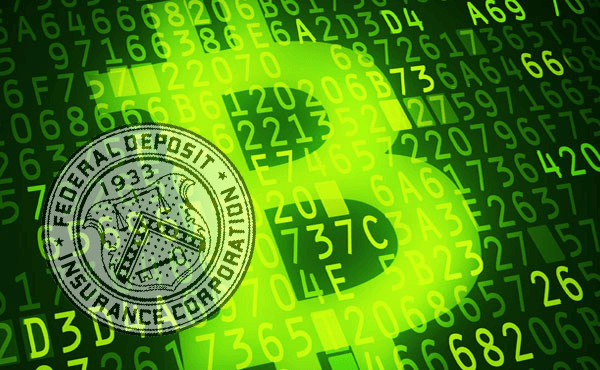
Exchanges and hosted wallets have always been a weak point for bitcoin. Although the decentralized nature of the protocol is valuable for removing counterparty risk from digital value storage, the reality is that many businesses, traders, and other participants still need to be able to interact with the commodity on an instantaneous basis. In other words, people need to be able to move in and out of bitcoin in seconds rather than minutes or hours.
A number of exchanges in the United States are now offering FDIC-insured dollar deposits, which should be helpful in bringing more credibility and stability to the entire bitcoin ecosystem. If serious individuals are going to interact with the exchanges and other platforms built on top of bitcoin, then they need to at least be assured that their dollar deposits are not going to disappear overnight.
Using bitcoin as a payment network
The main reason that FDIC insurance is such a big step for bitcoin exchanges is that it now gives businesses and individuals more flexibility when using bitcoin as a payment system. Obviously, services such as Coinbase and BitPay have allowed merchants to accept bitcoin without any exposure to price volatility risk, but the fact that those funds are then placed into a separate bank account essentially removes those merchants from future transactions in the bitcoin ecosystem. Now that a merchant can perhaps keep some funds on an FDIC-insured bitcoin exchange, it becomes easier to use bitcoin as a payment method for future expenses. The merchant no longer has to purchase bitcoin through a separate platform or process if they wish to use it for their own payments in the future.
Truthcoin’s Paul Sztorc recently responded to a few questions related to bitcoin’s usage as a store of value via email, and his thoughts on the matter are also relevant here. In terms of bitcoin’s volatility issues, Sztorc had this to say:
“Financial derivatives can substantially reduce Bitcoin’s volatility problem (forward contracts, calls/puts/leverage). If they’re so great, where are they? Part of the problem is exchange risk (exchange can run off with your money) which stalls the entire fiat <-> BTC exchange process. For example: if I were trading I would withdraw any BTC immediately (would never log off an exchange with my BTC/cash still on their website). This thins and slows the markets. Regulatory holdup, etc.“
Sztorc also noted that businesses “shouldn’t hoard cash.” He pointed to the cash conversion cycle and commercial paper as two ways businesses attempt to alter the cash they keep on hand. Businesses will usually do everything they can to get by without interacting with cash.
Current exchanges offering FDIC-insured deposits
2015 has been known as the year of Wall Street’s involvement in bitcoin up to this point, but it’s also been the year that FDIC insurance has become available for bitcoin exchanges through partnering banks. The following exchanges or bitcoin banks offer FDIC insurance on dollar deposits in one form or another:
- itBit
- Coinbase (and Coinbase Exchange)
- Circle
- Gemini
What about insured bitcoin deposits?
Of course, it would be nice if bitcoin deposits were insured as well. There are a few startups, such as Elliptic, who are working in this area, but assessing the risk associated with a lost or stolen bitcoin wallet is still a work-in-progress for most insurance providers. Insured bitcoin deposits would obviously have to come from the private sector, at least for now, but Xapo, Gem, Coinsetter, and others are already coming up with creative solutions to this problem

